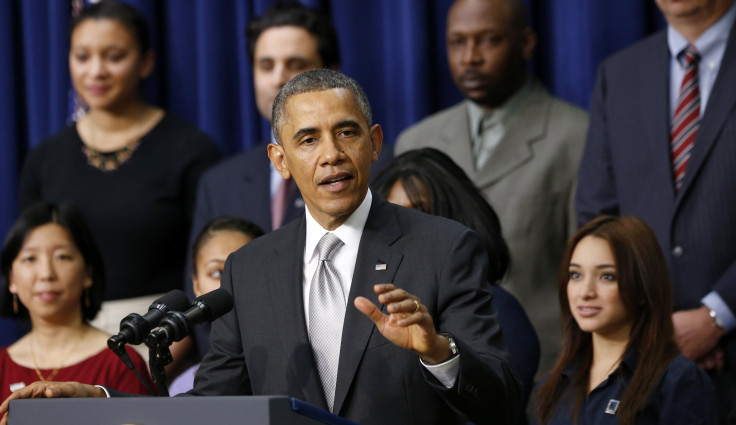A Case Against Obamacare: Could Halbig v. Sebelius Dismantle The Affordable Care Act In 2014?

When President Obama first presented the concept of universal health care, he didn't get the warmest reception. But the Affordable Care Act (“Obamacare”) was eventually signed into law in 2010, and to the chagrin of its opposition, upheld by the U.S. Supreme Court in 2012. It’s no surprise that those who oppose the Act tried everything in their power, including causing a 16-day government shutdown, to avoid its successful implementation. But one case, Halbig v. Sebelius, has the power to potentially dismantle the entire legality of the law in 2014 by asking one simple question: Does the language of the Affordable Care Act contradict itself so much that the legislation can no longer stand?
The success of the plaintiffs’ case in Halbig hinges on whether the phrase “individuals who are identified by an Exchange established by the State under section 1311” excludes federally-run marketplaces, which are a key provision of the law. As it stands now, uninsured individuals can gain insurance from their state marketplaces or, if their state chooses not to set up its own marketplace, the federal government can help them get insurance through its own marketplace. The plain language of the statute, Obamacare opponents argue, does not allow for the federal government to step in because it only mentions exchanges established by the state.
“The plain text of the statute contradicts the way the Obama administration has implemented it,” said Sen.Ted Cruz, R-Texas, when asked about Halbig, according to Slate. . “The law is clear that the individual mandate and the accompanying subsidies only apply if a state sets up an exchange. The Obama administration simply said, ‘we’re not following that part of the law. We’re going to apply it without a state exchange.’ In our constitutional system, if a president doesn’t like a law, there’s a mechanism to address that. You go to Congress, and you change the law.”
For some, the argument seems just plain foolish. “I think it’s a case without merit,” said Sara Rosenbaum, a health care expert at George Washington University, according to Newsweek. “The plaintiffs have seized on a few words in a statute, they’ve taken the words completely out of context, and they have ignored numerous other parts of the statute that make their interpretation of the law basically senseless.”
The plaintiffs, which include individual taxpayers as well as three employers, have chosen attorney Michael Carvin to represent them in the case. In order to win, he will have to prove that the language in the statute means what the plaintiffs have interpreted it to mean. Otherwise, under longtime Supreme Court precedent, the Court is to interpret the language of the statute in the way that the administrative agency (the U.S. Department of Health and Human Services) would. “The text argument just doesn’t get him across the finish line,” said Simon Lazarus, senior counsel at the left-leaning Constitutional Accountability Center, according to Newsweek. “They need this purpose argument. They can’t just get away with saying there was a glitch in the statute.”
But that doesn’t mean the case is not winnable. Those watching the case are taking the threat to the law’s successful implementation very seriously. “I think you have to take every case seriously,” Rosenbaum said.
The case hasn’t made it to the Supreme Court docket yet, but has already been argued in federal court. If Halbig doesn't make it to the highest court of the land, there are quite a few other lawsuits chomping at the bit for the chance to topple the law.
Published by Medicaldaily.com



























